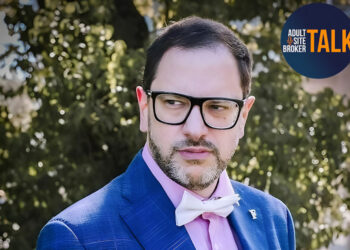 MORGANTOWN, W.Va. – “Most pornography consumed today involves some form of physical aggression, verbal degradation or abuse, objectification or power imbalance. So, it’s only natural that frequent exposure influences young people’s idea of healthy sexuality.
MORGANTOWN, W.Va. – “Most pornography consumed today involves some form of physical aggression, verbal degradation or abuse, objectification or power imbalance. So, it’s only natural that frequent exposure influences young people’s idea of healthy sexuality.
Such is the premise of Walter DeKeseredy’s new book, Violence Against Women in Pornography (Routledge, 2016). DeKeseredy, the Anna Deane Carlson Endowed Chair of Social Sciences and director of the West Virginia University Research Center on Violence, delves into the impact the pornography industry has had on technology and how it has become more mainstream over time.
According to the author, the book is the first of its kind to examine the connection between violence against women in porn and violent acts against women in real life. [Ed.: the alleged connection. DeKeseredy’s book discusses and extrapolates from social science theory and anecdotal evidence, not research.]
“The pornography industry is this juggernaut,” DeKeseredy said. “To me, pornography is a symbol of how we view our women in our society. It’s a very dangerous thing. Is this how we want 50 percent of our population to be portrayed?”
While DeKeseredy acknowledges pornography has existed for a long time [Ed.: What is thought to be the earliest pornography dates to approximately the second millennium B.C. One would hope a college professor might be a tad more precise than “a long time.”], he argues that the increasingly mainstream nature of the material and technological advances make it increasingly difficult for those who watch porn to delineate between reality and fantasy. [Ed.: The author touches briefly on the potentially disruptive nature of virtual reality, but the technology was not on the market when the book went to press.]
In the 1980s, DeKeseredy said, pornography was largely constructed as features with music and titles similar to mainstream movies. But today’s pornography, available in the form of streaming videos online, provides viewers with a stripped-down experience that is short on story and long on gratuitous violence.
“The producer will say, ‘take your clothes off,’ or make sexist comments and a man walks in and they start having sexual relations primarily around his desires,” DeKeseredy said. “It’s so real. There’s no script. There’s nothing. It involves so much violence.” [Ed.: It’s called gonzo. It’s cheap to produce. It sells. The same holds true for reality-TV, but porn may be less violent, less abusive and possess more entertainment value.]
In Violence Against Women, DeKeseredy and co-author Marilyn Corisanos, professor of sociology at Eastern Michigan University, also examine how the consumption of pornography translates to violent behaviors in real life. The book theorizes pornography has become normalized to the point that society has accepted “rape myths” as truth. Common rape myths include the ideas that sexual assault is uncommon and that people typically are raped by strangers.
“One of the scary things is that since rape is a very common theme in porn, and since pornography consumption has increased exponentially, more and more people are accepting of rape myths,” DeKeseredy said. [Ed.: Including, evidently, members of congress. According to some arch-conservative male congresspersons, a woman’s body has “ways of dealing with” pregnancy resulting from rape. Of course, those congress members exist on the far right edge of the Religious Right and would never consider watching porn.]
“I hear it all the time,” DeKeseredy continued. “People talk to me in my community, and I’ll talk about sexual assault on college campuses, and people will say, ‘Well, why did she go to his room?’” [Ed.: And she was wearing a short skirt. She was asking for it.]
While some U.S. lawmakers propose internet filters should be implemented to restrict access to pornographic content, DeKeseredy said government regulations won’t solve the problem. Instead, he suggests a multi-pronged approach to fight the normalization of pornographic content.
Among the solutions? Healthy sex education that moves beyond reproduction and addresses respect and consent. [Ed.: Sex education of any kind would be better than what students receive now, which is nothing. Thank you, again, arch-conservative, Bible-thumping legislators.]
“Sex is healthy, it’s not a question of policing people’s sexuality,” DeKeseredy said. “I’m not against sex. I’m against how certain sexual behaviors are characterized and portrayed.”












